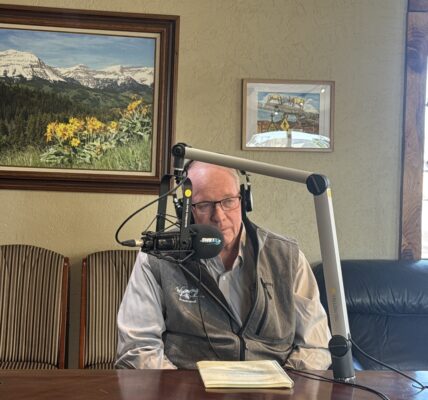Wyoming State Superintendent gives overview of education from topics like masks, funding, and accountability
The Wyoming State Superintendent, Jillian Balow, joined SVI to give updates on the current education situation from topics such as masks, vaccines, funding, accountability, and discussed an upcoming program to be introduced.
Masks and Vaccines in schools
She says when it comes to masking not much has changed. Mandates will be left up to the individual school districts to allow as much local flexibility as possible.
She says what she has seen is most districts have not required any specific mandates.
“But a few have when their health metrics have warranted it,” Balow said. “And most of those districts have now lifted the mask requirements.”
The vaccine for 5-11 year-olds recently received an Emergency Use Authorization (EUA) and vaccination for 12-15 year-olds are sill under an EUA. She says the CDC has given guidance that even after vaccination for these student-age children, the agency will still recommend masking in schools.
“Which I think is illogical and crazy frankly,” Balow said. “So, I think at some point Wyoming is going to have some decisions to make you know as far as do we follow CDC guidance or do what’s best for the students and the state.”
She also noted the Occupational Safety and Health Administration (OSHA) mandate and how that affects staff. She says she has informed others to familiarize themselves with what that mandate looks like.
“My hope and my belief is that it will never come to pass in Wyoming or anywhere across the nation,” Balow said. “But I’m also a firm believer in following the law.
“So, I have asked superintendents to really begin what that vaccine mandate looks like for school staff.”
She also says she doesn’t really see any school board supporting a vaccine mandate.
School Funding
She says the recent CREG report ended showing better results than expected, but only in the near-term.
“When natural gas and oil prices go up, so does our revenue,” Balow said. “Unfortunately we haven’t seen the same kind of bounce back in production.”
She noted the drop in production of coal and the regulation from the Biden administration which prohibits drilling on federally owned lands. She says there is still a structural deficit that exists.
“But right now, today, schools are doing okay,” Balow said. “We still have savings in the bank.”
She says the state legislature will keep this discussion ongoing as the problem “is very real”. She says the problem may not exist today, but it will down the line.
School Accountability, Assessment, and Graduation Rates
Wyoming was one of a handful states that had students learning in-person during the COVID-19 pandemic last year. However, it is tough to know what learning disruptions, if any, exists.
Balow says the Cowboy state saw “an insignificant jump” in the WYTOPP scores.
“I think for statistical purposes, we could call it flat,” Balow said. “Our kids did about the same.”
She says there are some bright spots in that, however. She says most states that didn’t have kids in school, but still tested saw a drop in its assessments on students. She also says the context likely matters as they didn’t encourage teachers to focus on the assessment as strongly, but on in-person learning.
“I anticipate that we also will see that reflected in, a little bit higher if not just steady, ACT scores and graduation rates,” Balow said. “But that has yet to be determined.”
She also says that last year they did not calculate accountability due to COVID-19. She says these matters are important, but the main focus is looking at what is being taught in the classrooms.
Boot Up Wyoming standards coming in 2022-23
The computer science program in the state called Boot Up Wyoming is underway, but learning standards will be implemented in the 2022-23 school year.
Balow says she is very excited for this program. This will require all students K-12 to have some computer science education.
“I want to be clear computer science does not mean you’re spending time on a computer,” Balow said. “And in fact in the lower grades most of that learning takes place unplugged.”
She says this means students will begin to start thinking about algorithms and solving problems in mathematical equations. She says it is quite fascinating watch even the kindergarteners figuring out how to get from point A to point B.
“What are the exact steps that we need to take?” Balow said. “And so we already see that from some of our early adopters across the state.”
She says a lot of schools are so excited for it as well. They have already provided training for teachers and starting to implement the standards along with that.
She also noted that for the upper grades such as middle school and high school the learning will be a bit more hands-on.






